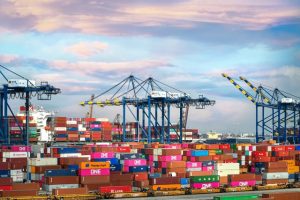 With Brexit And The Covid War, UK Logistics Costs Are Set To Rise
With Brexit And The Covid War, UK Logistics Costs Are Set To RiseThe UK faces a double hit of logistics costs rising from the new partners of Brexit and COVID-19 restrictions. Most of us have seen the effects of panic buying of products like toilet roll and tinned foods.
With boarder delays and a surge in demand, immediate costs have gone up alongside long term costs with increased tariffs.
The UK logistics industry kept Britain propped up and kept food on the shelves as they were quick to react to the pandemic of 2020-21.
The UK logistics sector is what keeps Britons wheel turning, from during the COVID lockdowns to today where lots of companies are still struggling with supply chain issues.
The UK logistics sector is split into four core areas:
The logistics sector came under immense pressure during the lockdowns of 2020 and was considered key worked to keep the wheels of the country turning.
Keeping shop shelves stocked was priority number 1, but as we all remember, there were lots of shortages, particularly frozen foods and toilet roll.
Since that historic announcement on 23rd March, 65 million people in the UK were told to stay at home. This gave thousands of trucks, vans and lorries clear roads in order to get much needed supplies from docks to distribution centres, to warehouses to our shelves.
Despite panic buying of products all across the UK, shelves were restocked within days (or even hours) thanks to our UK logistics system.
They were and are our key workers, without whom the country would have been in a similar situation to rationing of world war 2.
Shipping and air freight brought products into the UK and the road networks were able to quickly move goods from warehouse to shop shelves normally within 24 hours.
Uk logistics costs are set to go up, with larger companies able to absorb increases easier than the smaller ones. We have all seen the vans of Ocado and Amazon in large numbers, and predictions show this is set to increase as our buying patterns move more online than ever before.
With lockdown restrictions easing in 2021, the network faces many challenges, with traffic numbers restored to post pandemic levels.
Smaller logistics firms face huge competition against global players such as DHL
Marketing for logistics companies therefore is going to have to adapt to the new world we have been thrown into. Social media is playing a big roll in this, indeed many people have calved out a career as a social media influencer on platforms like TikTok.
Logistics costs in the UK are predicted to rise alongside Brexit delays, but help is available to UK transport companies.
We saw during the lockdown lots of Amazon delivery vans driving around, and this has not changed. They are so busy many Amazon delivery drivers do not use branded vans as there are not enough to go around.
Much of our logistics industry can be supported by private companies like Amazon.
Britain has always been a trading nation going back to pre-Roman times, and this habit has continued to the modern day.
The UK Government is openly supporting all logistics firms to keep the trading wheels turning, bringing goods in and out of the nation.
The logistics industry £163 billion to the UK economy and generated over £1 trillion in revenues. For this reason, government support is there to ensure the network is secure and continues to grow with state and private investment.
Although the future is unknown and UK logistics costs are set to rise, the future does look bright as we move into the new unknown future.
We would all like to see less lorries on the roads, with the pollution this causes, adding to traffic congestion and damage to the roads. Moving goods back onto the rail network is considered by many to be a better route for the future.
Investment into the rail system is required to facilitate this however, whether this is through public investment or private investment. This should take significant pressure off the road networks which will make the country a very different place.